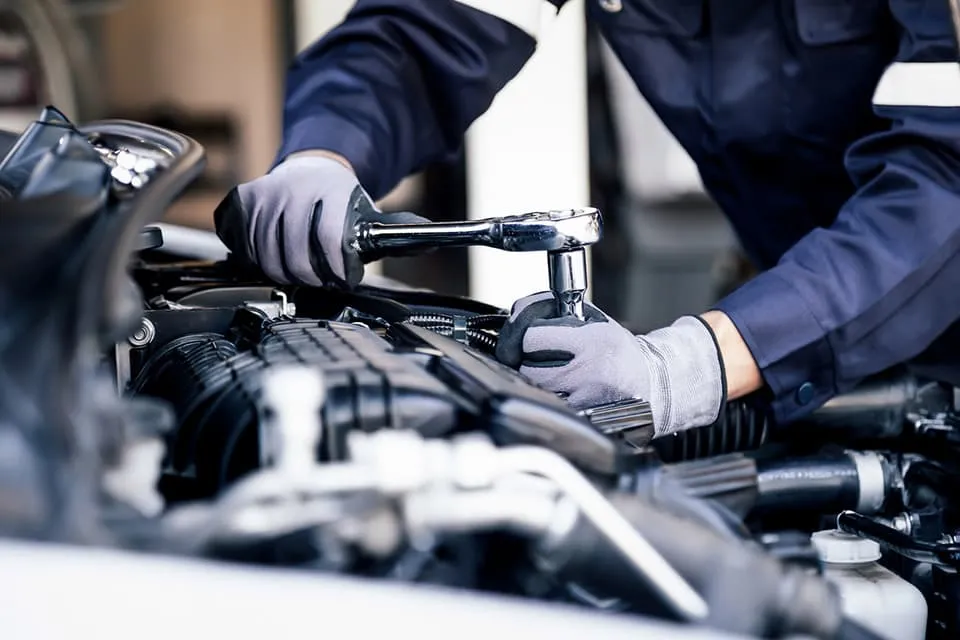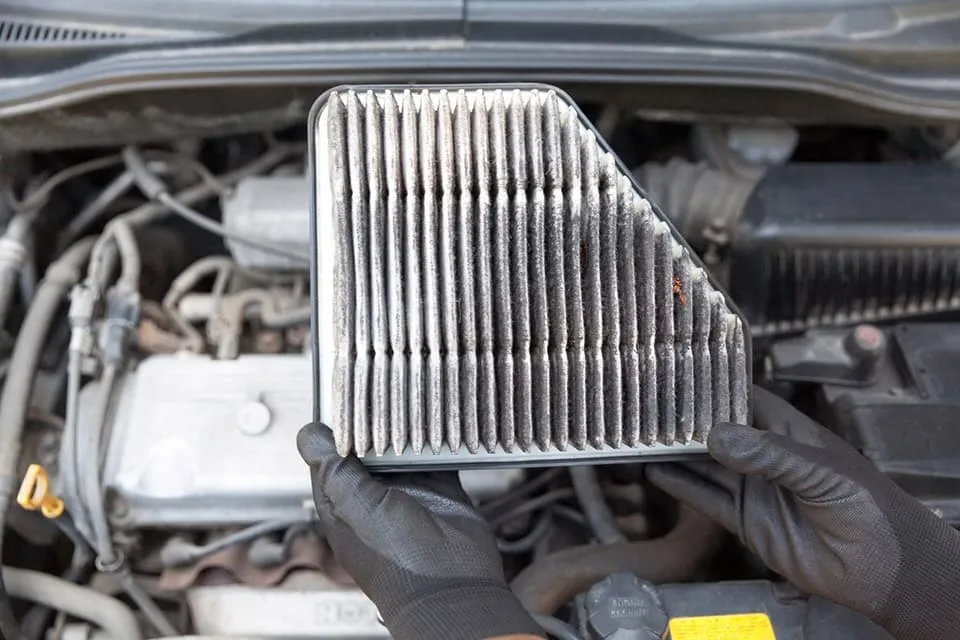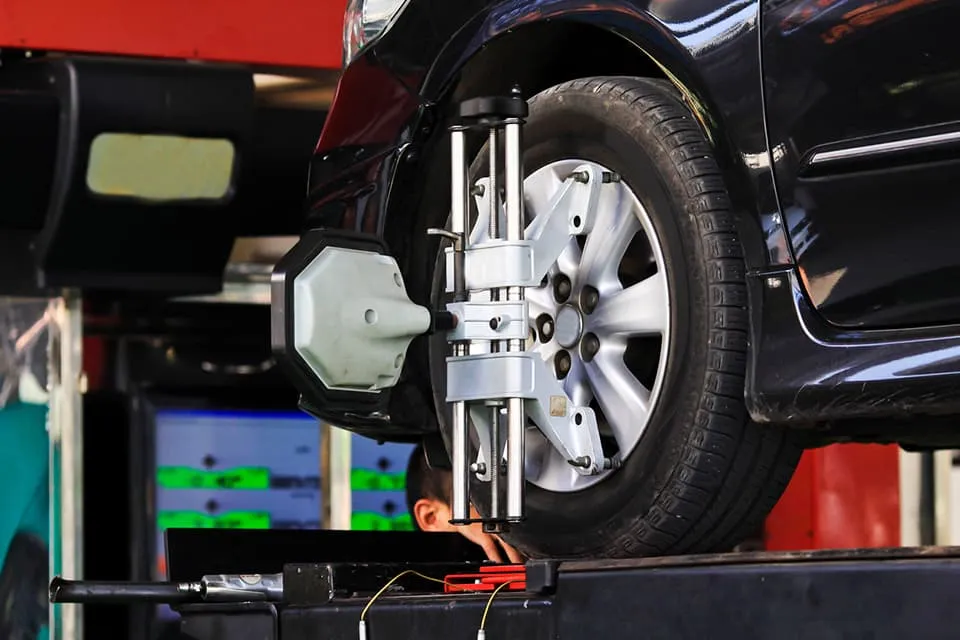Car Servicing 101:
6 Most Important Services for Your Car

With budgets tightening and vehicle costs skyrocketing, keeping your car in good working order is more important than ever. Frequent car servicing is key to increasing the longevity of your vehicle's internal components and extending its usable lifetime. By getting your car regularly serviced, you can add thousands (if not hundreds of thousands) of miles to its overall lifespan. Let's look at what car servicing includes and the most important services you'll want to keep up on.
What Does a Car Service Include?
What a specific car service includes will vary, but overall a vehicle servicer will often provide a variety of inspections, cleanings, and replacements. These may include:
- An Inspection to Assess Its Condition
- Battery Inspection and Cleaning
- Oil And Oil Filter Change
- A Fluid, Belt, Filter, Hose, Brake, and Emissions Check
- Windshield Wiper Check
- Light Replacement
- Tire Rotation and Alignment
- Tire Balance and Air Pressure Check
- And More
Fluid levels will be checked and topped off, the oil will be changed, and safety features will be inspected for proper function. Depending on the cost of the service, they may also replace your spark plugs and timing belt, service your air conditioner, and inspect your ignition systems.
6 Important Services for Your Car
Vehicle Inspection
Whether you get a complete vehicle inspection or a basic check, you'll want to ensure a professional looks at your vehicle semi-regularly. Vehicle inspections are an excellent way to get a general idea of what work your vehicle needs and what areas of service you'll want to pay more attention to. You'll want to get these inspections done once or twice a year and more often if your vehicle has recently been experiencing issues. Some states even require vehicle inspections, so make sure to check the guidelines on your local DMV website to see if you comply with local law.
Air Filter Replacement

To ensure that the air flowing through your engine is free of debris and particulate matter, you'll want to ensure that you regularly replace your air filter. If your air filter becomes too dirty, unburned fuel will convert to soot and build up around the spark plugs. This can cause your engine to malfunction and even misfire. Not only can this damage the engine, but it will lower your vehicle's fuel efficiency, cause it to fail emissions checks, and reduce the overall lifespan of your car.
Oil Change
Oil helps keep the moving parts of your engine lubricated so that it operates properly and avoids being damaged. When your engine is running, the combustion by-products are soaked up by the oil running through it. So if you neglect to get an oil change, these by-products reach a critical mass and begin to convert the motor oil into slow-moving sludge. Because the sludge can no longer remove heat from the engine, it could lead to your engine malfunctioning. Left long enough, this could lead to the total failure of your engine, ceasing your car's ability to function.
Light Check and Replacement
Your vehicle has a variety of lights that serve various functions, and each will need to be checked or replaced during car servicing. These lights include:
- Regular Headlights: These are used to light up the road for travel at night or during inclement weather.
- High Beams: Mostly used in rural areas, these higher luminosity headlights can help you see further down the road and avoid obstacles at night.
- Fog Lights: Not included on all vehicles, fog lights are for low-visibility situations like fog, mist, snow, and heavy rain.
- Turn Signals: Turn signals allow you to show whether you are turning left or right, warning drivers behind you where you intend to go.
- Brake Lights: These lights are activated whenever you apply your brakes, letting vehicles behind you know when you are slowing down or stopping.
- Hazard Lights: Hazard lights let other motorists or emergency vehicles know when an issue is happening with your car, allowing them to prepare for sudden stops or malfunctions.
Tire Rotation and Alignment

You'll want to make sure you get your tires rotated every 5,000 to 7,500 miles to ensure that they wear down in a consistent pattern. Without regular rotation, tire treads will become uneven, making the tire unstable and unsafe to drive on. This increases the risk of hydroplaning, poor traction in bad road conditions, a higher chance of blowouts, and makes the tire more susceptible to heat buildup. It also reduces the tire's longevity, forcing you to purchase an entirely new set when only part of the tires are actually worn down.
Spark Plug Check and Replacement
Without functioning spark plugs, fuel won't be able to ignite and mix with air to power your vehicle. By checking and replacing spark plugs when they aren't working, you can ensure that your engine runs at full power and operates as efficiently as possible. This car service doesn't need to be completed quite as often as other items on this list, with most spark plugs lasting between 75,000 and 100,000 miles before they need to be replaced.
How Do I Know if a Used Car Has Been Serviced?
Because regular car maintenance is so important to a vehicle's health, you'll want to make sure any used car you purchase has been properly serviced. The best way to do that is by getting a vehicle history report. With a vehicle history report, you can see essential details about any available car, including:
Vehicle Overview
Title History
Sales History
Location History
Pricing
Residual Values
Junk/Salvage Records
Insurer "Total Loss" Records
Auto Specs
Title Brands (Problem Checks)
Mileage Information
Awards and Accolades
NHTSA Crash Testing and Recall Data
And Much More!
This will help you ensure that a car doesn't have any hidden damage or history of accidents, and you can confirm that a seller is honest about the vehicle's past. Vehicle history reports can save you time and money and reduce the chance of becoming a car-buying scam victim.
FREE Vehicle Search
- Accidents
- Problem Checks
- Title Records
- Recalls
- Values
- Specs
-
InfoPay, Inc. (dba GoodCar) is an Approved NMVTIS Data Provider
-
-































